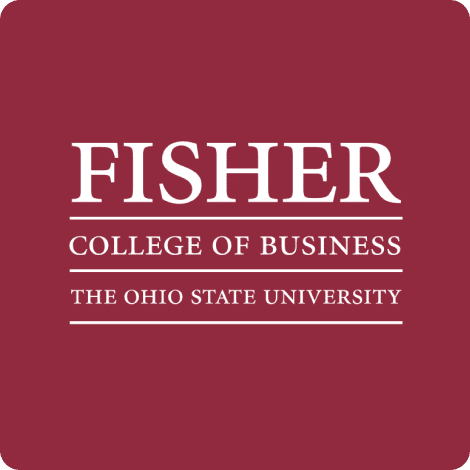Top-ranking programs, a human-centric approach, and a campus surrounded by some of the fastest-growing startups in the country, the Full-Time and Executive MBA programs at the University of Texas at Austin’s McCombs School of Business have it all.
“We’re very future-focused,” shared Stacey Batas, the Director of Admissions and Recruiting at McCombs School of Business. “Our MBA programs teach students how to succeed not only in today’s business market but how to continuously adapt and grow their skill set to be successful long-term.”
However, Batas saw a disconnect between the fast-paced, tech-forward atmosphere on campus and the old-school experience applicants were getting within the admissions process.
“The business landscape changes so quickly, so we’re constantly bringing in new professors, updating our curriculums, and advancing our processes to mirror that environment,” she explained. “With Kira, we were able to enhance our admissions process in a way that aligns with the future-focused intent of our school.”
Addressing inconsistencies and inherent bias in the interview process
“We were facing several significant pain points with our old process,” shared Batas. “From a sheer numbers perspective, it was only possible to invite a subset of applicants to interview, and those invitations were based on a file review. This meant that only a subset of applicants was receiving a comprehensive holistic evaluation, and if we missed something in that initial file review we were losing out on that applicant entirely.”
“We were also challenged by variations in the interviews themselves,” Batas continued. “Applicants could interview with an alumnus, an admissions officer, or a current student. That interview could take place either in-person or virtually. Interviews were happening across several weeks and at different times of the day. Some interviewers closely followed our questions, while others might have missed a question or not gotten to it in time.”
Learn how Kira can help solve the top ten challenges facing today’s admissions teams
“This lack of consistency in the interview experience created significant inequalities in the application process,” she explained. “Interviewing with an admissions officer could be seen as a huge advantage, as we’re ultimately the ones making the final decisions. However, looking over past data, we found that our alumni were much more likely to strongly recommend an applicant than students or admissions officers were.”
“Every interview was slightly different, and those differences could unfairly impact the applicants’ eligibility, either positively or negatively.”
“The admissions committee often found it difficult to get a true understanding of an applicant’s personality and soft skills because they were limited to just one reviewer’s evaluation of the candidate,” Batas explained. “We ended up spending a considerable amount of time re-interviewing applicants because we couldn’t gather enough reliable insight from their first interviewer’s evaluation.”
“By replacing our interview with an Asynchronous Assessment in Kira Talent, we’re able to holistically assess every applicant while reducing inconsistencies in our process and helping the admissions committee make a more accurate judgment about how an applicant will fit into one of our MBA programs.”
Engaging top candidates earlier
When prospective students apply to McCombs School of Business, Kira automatically sends them an email invitation with a unique link to complete their video assessment. From there, they have seven days to record and submit their responses. With assessments coming in on a rolling basis throughout the admissions cycle, Kira helps spread out the workload and make it manageable for the Batas and her team.
“This year, our applications opened in early August and we had our first assessment completed in early August,” shared Batas.
“With the new, streamlined process, we’re assessing and engaging applicants earlier in the process.”
“We’ve had wonderful feedback from our applicants on the new timeline,” Batas shared. “They like how quickly they receive a response from our school. They’re not waiting on pins and needles to hear if they’ll receive an interview spot.”
Saving time and reinvesting in recruitment
With their new process, McCombs School of Business has seen increases in efficiency across the board. Receiving nearly 2000 applications each cycle, Batas and her team of reviewers used to interview between 60% and 70% of candidates, spending up to 1,400 hours in interviews.
With Kira, McCombs is able to interview every applicant and reduce the time spent interviewing by nearly 30%.
Reducing workload with automated admissions
“Any admission officer can tell you that the time spent in interviews is just the tip of the iceberg,” added Batas. “Organizing and managing the process takes just as much, if not more, time. The Kira platform now takes on a lot of that management work for us.”
Kira’s integration with Salesforce allows the new process to fit seamlessly into McCombs’ existing system, eliminating significant work for Batas and her team.
“Within a day or two Kira had the Salesforce integration fully up and running,” Batas shared. “The connection between the two platforms has allowed us to automate many of our processes. Applicants receive an automatic email reminding them to complete the assessment in Kira and, once completed, they receive a follow-up providing information on the next steps. ”
“At the same time, I can see in Salesforce when an applicant has received a Kira invitation and when they’ve completed their assessment,” she continued. “Once the reviewer completes their evaluation, the system pulls in all of their scores and notes into Salesforce and links them directly to the assessment in case the committee wants to watch it.”
“The seamlessness of this process allows us to reinvest the hours we’re saving into hosting recruiting and admissions events, engaging with applicants during visits, and conducting one-on-one chats with folks who have questions about McCombs,” Batas added.
“With Kira, our recruitment and admissions process is stronger. We're able to do a better job yielding our admitted students because we're spending less time on the interview management, giving us more time to focus on engaging applicants."
Learn more about Kira Talent for Graduate Management Education
Refocusing the admissions interview
“When we started working with our Client Success Manager at Kira, we talked a lot about what aspects of our old process we valued and what insights we needed to get from this new process in order to help us make admissions decisions,” Batas shared.
“We realized we wanted to maintain the personal human connection between interviewer and applicant, while not conflating that with the actual assessment itself.”
“By separating the assessment portion of the interview from the connection portion, we’re able to establish the structure and consistency we need to support an equitable assessment across thousands of candidates, and still build that warm and friendly connection with applicants,” Batas explained. “This is the concept we’re focused on in our new process with Kira.”
“This year, we invited every applicant to complete an assessment in Kira and schedule a 15 to 20 minute video chat — which we’re calling the ‘admissions connection’ — with one of our current students,” Batas explained. “There’s no critique or rubric, the admissions connection is simply meant to give applicants the opportunity to ask questions, learn about our school and program, and invite conversation between current and prospective students.”
Future-proofed admissions for a future-focused MBA
“We’ve always prided ourselves on having a holistic review process, and it has always been true,” Batas shared. “But now we have a process that not only helps us mitigate bias and maintain consistency across all candidates, it also provides us with earlier insight into our applicants so we can reach out to them faster.”
“With the results we’re seeing, we believe we're going to be the front runners as more schools start to realize what Kira can do for their processes.”
“Mitigating bias in the admissions process is a key element in the growing discussion around improving equity in business education,” Batas added. “We are proud to be focused on that future today, and Kira is a part of helping us achieve that in a more efficient way.”






